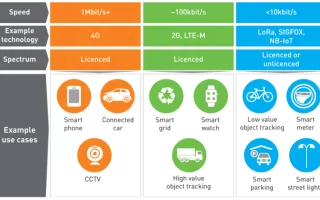In this article, we explore the exciting world of CRM analysis technology. In this digital age, customer relationship management (CRM) has become an integral part of businesses across various industries. What is CRM, and why is it so important? We will explore the key components of CRM analyzing technology and how they can revolutionize your business operations. From harnessing big data to leveraging predictive analytics, we’ll unravel the secrets behind successful implementation and highlight real-life case studies.
What is CRM, and Why is it Important?
CRM, or Customer Relationship Management, is a powerful technology that allows businesses to manage and analyze their customer interactions and data effectively. It gives companies valuable insights into customer behaviour, preferences, and needs, enabling them to deliver personalized experiences. CRM helps you gain a deep understanding of your customers by centralizing all customer-related information in one place.
The Role of Big Data in CRM
Big data refers to the massive volume, variety, and velocity of information generated by customers and businesses alike. It encompasses everything from customer interactions on social media platforms to purchase history and website behaviour. The key is not just collecting this vast amount of data but also utilizing it effectively. By harnessing the power of big data, companies can gain a deeper understanding of their customer’s preferences, behaviours, and needs. This wealth of information allows businesses to segment their customer base more accurately for targeted marketing campaigns or personalized communication.
Understanding Predictive Analytics in CRM
Predictive analytics is a powerful tool that plays a crucial role in CRM analyzing technology. It enables businesses to accurately predict customer behaviour, preferences, and future trends based on historical data. By leveraging advanced statistical models and machine learning algorithms, predictive analytics helps organizations gain valuable insights into their customers’ needs and preferences. With the help of predictive analytics, businesses can identify patterns and trends in customer data that might take time to become apparent. This allows them to anticipate customer needs and personalize their marketing efforts accordingly.
The Benefits of Using CRM Analyzing Technology
CRM analyzing technology offers a plethora of benefits for businesses that are looking to enhance their customer relationship management efforts. One of the key advantages is the ability to gain valuable insights into customer behaviour and preferences. By analyzing data gathered from various touchpoints, businesses can identify patterns and trends, allowing them to understand their customers’ needs and expectations better. This deeper understanding enables companies to personalize their interactions with customers, tailoring products or services specifically to meet individual preferences. This level of customization not only increases customer satisfaction but also fosters loyalty and repeat business.
How to Implement CRM Analyzing Technology in Your Business
Implementing CRM analyzing technology in your business can be a game changer. It lets you gain valuable insights into your customers’ behaviour, preferences, and needs. How do you implement this powerful tool? The process can be broken down into a few key steps. Assess your business needs and goals. What specific challenges are you trying to address with CRM analyzing technology? Do you want to improve customer retention, increase sales, or enhance marketing campaigns? Understanding your objectives will help guide the implementation process. Choose the right CRM system for your business. Numerous options are available in the market today, so take the time to research and evaluate different platforms. Consider scalability, ease of use, integration capabilities with other systems, and cost.
Case Studies: Successful Implementation of CRM Analyzing Technology
One case study involves a multinational retail company needing help with customer retention and loyalty. By implementing CRM analyzing technology, they gained deep insights into customers’ preferences, purchase history, and behaviour patterns. This allowed them to personalize their marketing campaigns and tailor product recommendations based on individual customer needs. As a result, they saw a significant increase in customer satisfaction and repeat purchases. Another case study highlights a telecommunications provider that wanted to improve its sales pipeline management. Using predictive analytics provided by CRM analyzing technology, they could identify high-value leads more accurately. This enabled them to prioritize sales efforts effectively and close deals faster. They experienced an impressive boost in revenue as well as improved operational efficiency.





